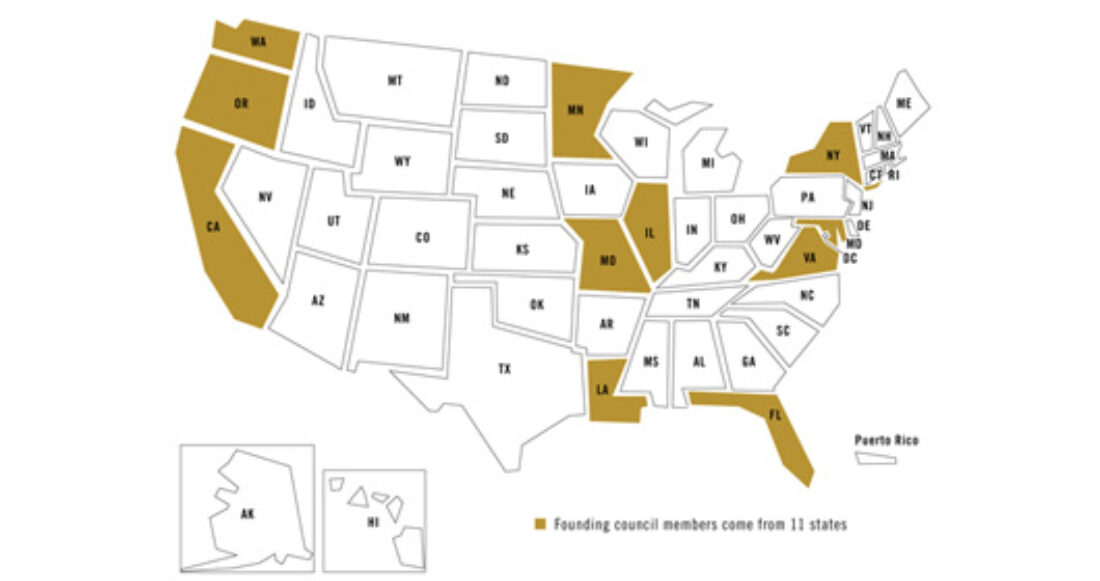Casey Foundation Forms Advisory Council of Youth for Juvenile Justice Work

Casey’s Juvenile Justice Strategy Group (JJSG) has launched a substantive, new partnership with young people currently and formerly involved in the juvenile justice system. Alexandra Frank, who is leading JJSG’s work on youth partnership, noted that young people who have experienced the justice system are often absent from policy reform efforts. “We hope to change this, starting with how we partner with young people in JJSG,” Frank said.
So in 2015, JJSG launched a 14-person advisory council of young people who have experience in juvenile justice. Frank noted that although JJSG had collaborated with young people on an ad-hoc basis before, “we had fallen short in establishing an ongoing and meaningful partnership.”
Planning for the council began last year when Casey convened a group of seven young people who had experience serving on youth justice advisory councils across the country. These youth consultants, who had seen the best and worst of youth-adult partnerships, helped advise JJSG and the Coalition for Juvenile Justice (CJJ) on an application process.
The advisory council was chosen from a pool of more than 100 passionate young people dedicated to reshaping the youth justice system. After an initial meeting in April 2015, the council has ramped up quickly with several in-person meetings and ongoing connections from their respective states. The council members are focused on supporting Casey’s reform work by sharing their insight and expertise in areas such as probation transformation and successful reentry. The members bring a unique view of what reform looks like, which is enhancing and energizing the Foundation’s work. Beyond Casey, the founding members are influencing reform by speaking at forums, such as the Congressional Black Caucus Annual Legislative Meeting and the Council of State Governments’ 50-State Forum.
Hernan C., a council member based in New York, described how he hopes this council will be different. “More often than not, I would see adults leading conversations while specific young people were selected to sit at the table without proper mentorship or training on how to effectively integrate their life experiences into solid recommendations for the field,” he said.
Hernan said what matters to him and his peers is that the adults hear and respect the youth members’ perspectives. One of his positive experiences with the council so far has been the “adults allowing room for conversation and debate with young folks before coming to a decision.”
The sense of community among the youth has been palpable from the start. California-based member Kyeisha T. affirmed how empowering it has been to bond with other young people who share her passion for juvenile justice reform. “We bring each other up,” she said. Robert W., from Oregon, echoed that sentiment. “Every time I speak with another council member, it is positive, upbeat and stimulating and, in a way challenging,” he said. “I say challenging not meaning stressful, but in a friendly way that urges me to push other members to do better and strive more, and for me to do the same.”
The founding members are emerging leaders in justice reform. Their council work is designed to build their skills and experience with the support of Casey staff. By necessity, they will be navigating group dynamics, politics and complex issues.
Hernan C. spoke about how much he and his fellow council members want to develop creative solutions to the problems currently impacting youth. “I want youth to be looked at as experts and leaders in their own right, rather than being looked at as tokens and missed opportunities,” he said.
With its youth advisors, Casey intends to develop a national strategy for partnering with young people formerly or currently involved with the juvenile justice system. Toward this end, JJSG will be collaborating with council members and CJJ to issue a youth partnership practice guide in 2017.






